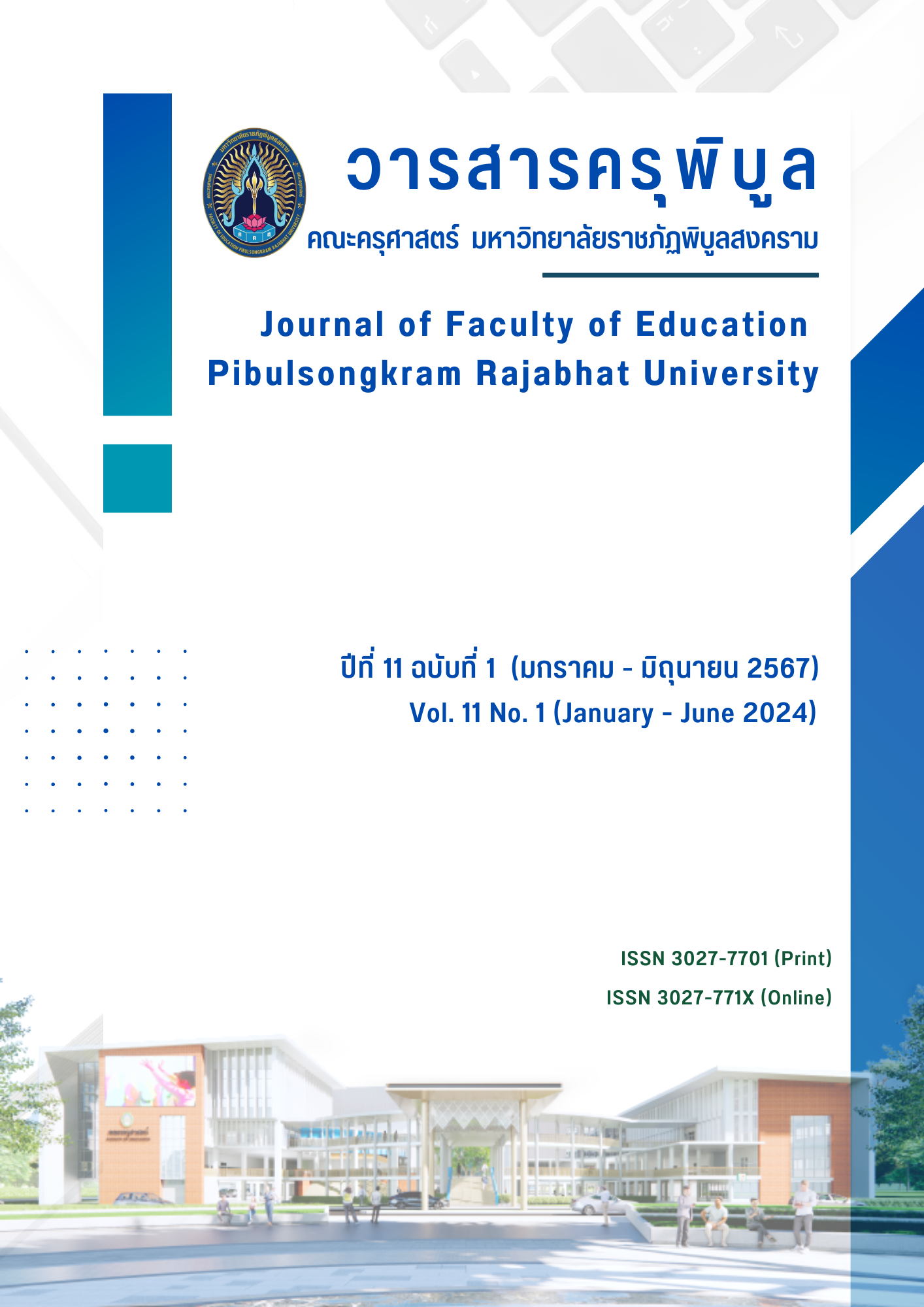A DEVELOPMENT OF ELDERLY CAREGIVER TRAINING COURSE IN HEALTH TOURISM
Keywords:
Training Course, Caregiver, Health TourismAbstract
The objectives of this research were 1) to develop a training course for elderly caregiver in health tourism, 2) to try out a training course for elderly caregiver in health tourism. The target group were tour guides. The research instrument was a training course for elderly caregiver in health tourism. The data were analyzed by comparing the results in various aspects before and after application of the training course.
The research results found that
1. Constructing curriculum and verifying curriculum quality. The training course consists of 6 elements as follows: background and importance, principles and goals, course objectives, course structure, guidelines for organizing training workshop, and measurement and evaluation. The examinations of curriculum quality and course documentation were appropriate at highest level. Elderly caregiver training course for medical tourism requires 50 hours theory and 140 hours practice. The curriculum comprises 15 topics: 1) necessity of caring for the elderly 2) roles, ethics and laws related to elderly caregiver 3) concept of the elderly in 21st century, aging process, age-related changes, and need of elderly care; 4) promoting health for the elderly 5) Assessing the elderly’s vital signs and personal hygiene 6) first aid for the elderly 7) Common diseases found in the elderly 8) Use of medications in the elderly 9) Thai wisdom and health care for the elderly 10) Recreational activities for the elderly 11) Creating a supportive environment for the elderly 12) Mental health care for the elderly 13) The travel needs of the elderly: using mobile application and travel planning for individual and group seniors 14) practical training and 15) practical learning by experience.
2. Evaluation of results (output), overall evaluation of the curriculum was at the highest level. The average score was 4.70 out of 5. 70 percent of the participants wanted to apply medical tourism with the elderly in the family. 22.5 percent of them applied the knowledge to enhance the ability to take care of the elderly as professionals and 7.5 percent applied in their job to enhance different competencies as tour guides. For further impact assessment (outcome), the researcher plans to follow up on the first group of the participants in applying the knowledge and experience gained by planning group activities to implement or create a model for tour guides in various areas.
References
ไกรษร จุลโยธา. (2565). ผลของการพัฒนาศักยภาพอาสาสมัครบริบาลท้องถิ่นเพื่อดูแลผู้สูงอายุที่มีภาวะพึ่งพิงจังหวัดบึงกาฬ หลักสูตรผู้ดูแลผู้สูงอายุ 70 ชั่วโมง (กรมอนามัย). วารสารวิชาการสาธารณสุขชุมชน, 8(3), 172-182.
ชยพจน์ ลีอนันต์. (2564). แนวทางการจัดการการท่องเที่ยวเชิงสุขภาพเพื่อนักท่องเที่ยวผู้สูงอายุ. วารสารมหาวิทยาลัยราชภัฏยะลา, 17(1), 147-155.
ณภัทร สาราญราษฎร์ และเกษวดี พุทธภูมิพิทักษ์. (2565). การส่งเสริมการท่องเที่ยวสาหรับนักท่องเที่ยวสูงอายุกลุ่ม Active Aging ด้วยแนวคิดการรับรู้จิตวิญญาณถิ่นที่ไม่รู้จักในประเทศไทย. วารสารมนุษยศาสตร์และสังคมศาสตร์ มหาวิทยาลัยราชภัฏพิบูลสงคราม, 16(1), 297-309.
บุญฑวรรณ วิงวอน, มนตรี พิริยะกุล และขจรศักดิ์ วงศ์วิราช. (2565). ความสัมพันธ์ของภาพลักษณ์จุดหมายปลายทาง เศรษฐกิจเชิงประสบการณ์และความจริงแท้ดั้งเดิมที่มีต่อความตั้งใจใช้บริการของนักท่องเที่ยวผู้สูงอายุที่จะมาเยือนแหล่งท่องเที่ยวเชิงวัฒนธรรม. วารสารรัชภาคย์, 16(45), 229-249.
ประเสริฐ สาวีรัมย์. (2565). การพัฒนาคุณภาพชีวิตของผู้สูงอายุที่มีภาวะพึ่งพิง โดยการพัฒนาความรอบรู้ด้วยหลักสูตร “CG เชี่ยวชาญ” ให้กับผู้ดูแลผู้สูงอายุที่มีภาวะพึ่งพิง ในเขตอำเภอเมืองบุรีรัมย์ จังหวัดบุรีรัมย์. วารสารศูนย์อนามัยที่ 9, 16(1), 86-100.
ปิ่นฤทัย คงทอง. (2562). การพัฒนาสมรรถนะของบุคลากรในอุตสาหกรรมการท่องเที่ยวสำหรับการบริการนักท่องเที่ยวผู้สูงอายุชาวต่างชาติ. วารสารเทคโนโลยีภาคใต้, 12(1), 228-235.
ลัดณา ศรีอัมพรเอกกุล และธีระวัฒน์ จันทึก. (2561). การท่องเที่ยวคุณภาพเพื่อนักท่องเที่ยวผู้สูงอายุ. วารสารมนุษยศาสตร์และสังคมศาสตร์ มหาวิทยาลัยราชพฤกษ์, 4(1), 12-28.
วสวัตติ์ สุติญญามณี. (2562). สังคมสูงวัยกับรูปแบบการท่องเที่ยว: ปัจจัยที่ส่งผลต่อการตัดสินใจในการเลือกรูปแบบการท่องเที่ยวของผู้สูงอายุในเขตกรุงเทพฯและปริมณฑล. วารสารศรีปทุมปริทัศน์ ฉบับมนุษยศาสตร์และสังคมศาสตร์, 19(1), 95-109.
วิลาสินี ยนต์วิกัย. (2562). แนวทางการพัฒนาธุรกิจเพื่อรองรับพฤติกรรมการท่องเที่ยวของผู้สูงอายุในประเทศไทย. วารสารวิทยาลัยดุสิตธานี, 13(2), 428-438.
เวหา เกษมสุข และคณะ. (2564). แนวทางการส่งเสริมสุขภาพผู้สูงอายุแบบมีส่วนร่วมผ่านการท่องเที่ยวเชิงสุขภาพผสาน การท่องเที่ยวเชิงวัฒนธรรมและภูมิปัญญาไทย: กรณีศึกษาจังหวัดพระนครศรีอยุธยา. วารสารพยาบาลตำรวจ, 13(1), 13-23.
สาโรช เผือกบัวขาว และวิภวานี เผือกบัวขาว. (2564). แนวทางการพัฒนาการท่องเที่ยวเชิงสุขภาพสำหรับผู้สูงอายุในอำเภอเมือง จังหวัดประจวบคีรีขันธ์. วารสารวิชาการมหาวิทยาลัยราชภัฏเพชรบุรี, 11(2), 4-10.
สุภาภรณ์ ประสงค์ทัน, ครินธร ฐานันดรสุข และสานนิตย์ เจริญบุญประเสริฐ. (2564). การท่องเที่ยวผู้สูงอายุ: การสำรวจข้อจำกัดทางการท่องเที่ยว กิจกรรมนันทนาการ และความตั้งใจในการเดินทางท่องเที่ยว. วารสารสังคมศาสตร์, 10(1), 119-131.
สุภาภรณ์ หมั่นหา และชลธิชา แสงงาม. (2564). การพัฒนาเส้นทางการท่องเที่ยวจังหวัดกำแพงเพชรสำหรับนักท่องเที่ยวผู้สูงอายุ. วารสารวิชาการมหาวิทยาลัยราชภัฏศรีสะเกษ, 15(2), 213-230.
อริยา พงษ์พานิช และฉลองศรี พิมลสมพงศ์. (2563). การพัฒนาการออกแบบอารยบริการสำหรับนักท่องเที่ยวสูงอายุในแผนกงานหลักของที่พักแรม. วารสารสันติศึกษาปริทรรศน์ มจร, 8(6), 2283-2298.

Downloads
Published
Issue
Section
License
Copyright (c) 2024 คณะครุศาสตร์ มหาวิทยาลัยราชภัฏพิบูลสงคราม

This work is licensed under a Creative Commons Attribution-NonCommercial-NoDerivatives 4.0 International License.
ลิขสิทธิ์เป็นของคณะครุศาสตร์ มหาวิทยาลัยราชภัฏพิบูลสงคราม

